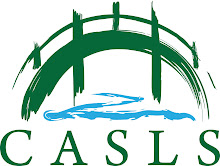From http://www.economist.com/node/21547298
Teenagers’ argot
Purists may disapprove, but multi-ethnic dialects are spreading
February 11, 2012
THIRTEEN languages in Germany are on UNESCO’s endangered list. Kiezdeutsch, the argot of inner-city teenagers, is not one. “Morgen ich geh Kino,” meaning “Tomorrow I’m going to the cinema,” a young Kreuzberger may say. In standard German that would be “Morgen gehe ich ins Kino”, with the verb restored to second place and a missing “to the” added. Words borrowed from Turkish (lan, meaning dude) and Arabic (yalla!, or come on!) might also intrude.
You will hear such language in Berlin and other big cities. Most Germans assume that the speakers are immigrants or their children. Not necessarily, says Heike Wiese, a linguist at the University of Potsdam who has written a new book on the topic. “All types of kids in multilingual areas,” including those with German roots, speak Kiezdeutsch. There are foreign analogues: straattaal (street language) in the Netherlands; Rinkeby-svenska, named for a multi-ethnic Stockholm neighbourhood in Sweden.
Kiezdeutsch is not a dialect but a style of speaking, says Helmut Glück, professor of German at the University of Bamberg. Such patois often develops among students, soldiers and other groups to foster a sense of belonging. Purists complain of its shrunken grammar and vocabulary. Yet Kiezdeutsch is not “broken German”, insists Ms Wiese, though she thinks teenagers should speak the standard language, too. It encourages mixing of people of different origins, not exclusion.
Read the full article at http://www.economist.com/node/21547298
February 16, 2012
Subscribe to:
Post Comments (Atom)





No comments:
Post a Comment
Note: Only a member of this blog may post a comment.